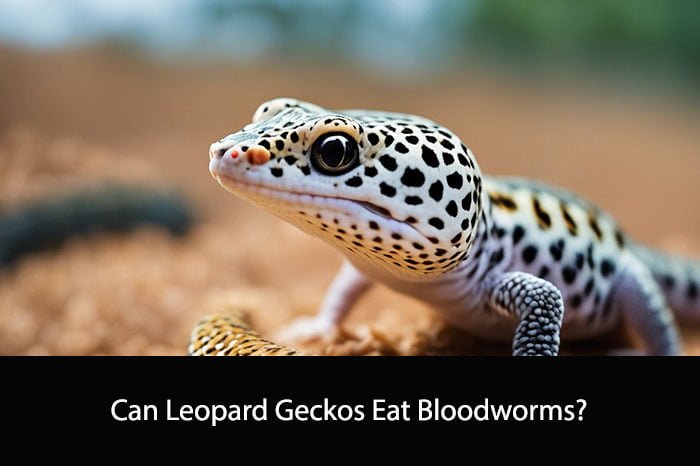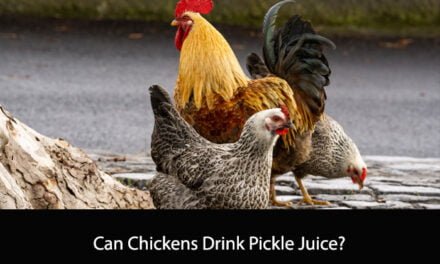Leopard geckos are popular pets among reptile enthusiasts due to their unique appearance and relatively low maintenance requirements. However, as with any pet, it is important to ensure that they are receiving a balanced and appropriate diet. One common question among leopard gecko owners is whether or not they can eat bloodworms.
Bloodworms are a type of aquatic worm that are often used as a food source for fish and other aquatic animals. They are high in protein and can be a nutritious addition to a leopard gecko’s diet. However, it is important to consider the potential risks and drawbacks of feeding them to your pet. In this article, we will explore the topic of whether or not leopard geckos can eat bloodworms and provide you with the information you need to make an informed decision.
Nutritional Requirements of Leopard Geckos
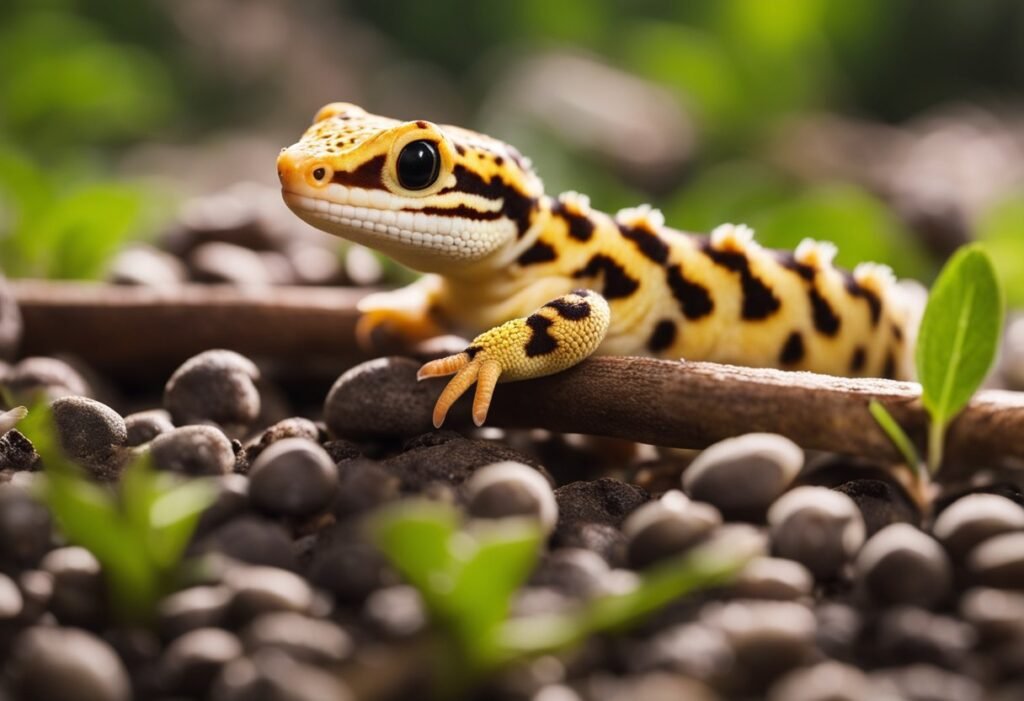
Leopard geckos require a balanced diet to maintain optimal health and well-being. As obligate carnivores, they require a diet rich in protein and fat to meet their nutritional needs. In this section, we will discuss the nutritional requirements of leopard geckos and the importance of providing a balanced diet.
Protein and Fat Needs
Leopard geckos require a diet that is high in protein and fat. In the wild, they primarily feed on insects such as crickets, mealworms, and waxworms. These insects are high in protein and fat, which is essential for the growth and development of leopard geckos.
When feeding leopard geckos in captivity, it is important to provide a variety of insects to ensure they receive a balanced diet. Bloodworms can be fed to leopard geckos in moderation as they are high in protein, but they should not be the sole source of nutrition.
It is also important to ensure that the insects are gut-loaded with a nutritious diet before feeding them to leopard geckos. This means feeding the insects a diet that is high in vitamins and minerals to ensure that the leopard geckos receive all the necessary nutrients.
Vitamins and Minerals
In addition to protein and fat, leopard geckos require a variety of vitamins and minerals to maintain optimal health. These include calcium, vitamin D3, and vitamin A.
Calcium is essential for the growth and development of leopard geckos. It is important to provide a calcium supplement to leopard geckos to prevent calcium deficiency, which can result in metabolic bone disease.
Vitamin D3 is important for the absorption of calcium. Leopard geckos require exposure to UVB lighting to produce vitamin D3 naturally. If leopard geckos are not exposed to UVB lighting, it is important to provide a vitamin D3 supplement.
Vitamin A is also important for the health of leopard geckos. It is important to provide a diet that is high in vitamin A, but not to excess as it can lead to toxicity.
In conclusion, leopard geckos require a balanced diet that is high in protein and fat, as well as a variety of vitamins and minerals. Bloodworms can be fed to leopard geckos in moderation, but should not be the sole source of nutrition. It is important to provide a variety of insects that are gut-loaded with a nutritious diet, as well as supplements to ensure that leopard geckos receive all the necessary nutrients.
Overview of Bloodworms
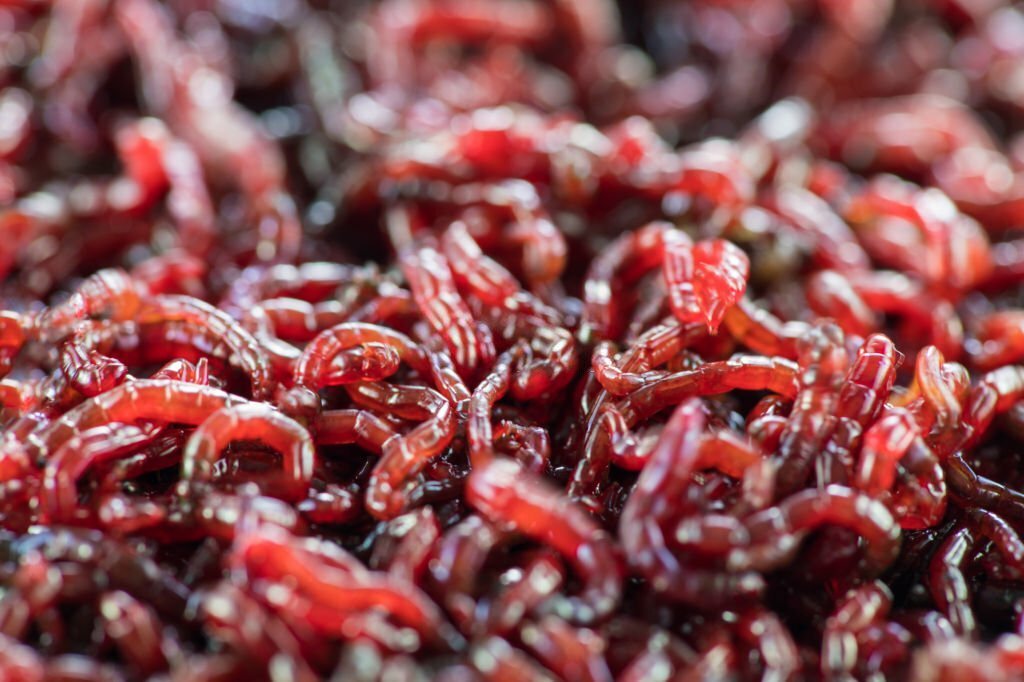
What Are Bloodworms?
Bloodworms are a type of aquatic worm that are commonly used as a food source for fish and other aquatic animals. They are the larvae of chironomid midges and are found in freshwater environments such as ponds, lakes, and rivers. Bloodworms get their name from their bright red color, which is due to the presence of hemoglobin in their bodies.
Nutritional Profile of Bloodworms
Bloodworms are a good source of protein, which is important for the growth and maintenance of leopard geckos. They also contain a variety of vitamins and minerals, including vitamin B12, iron, and calcium. However, they are relatively low in fat, which means that they may not provide enough energy for leopard geckos that are very active.
When feeding bloodworms to leopard geckos, it is important to ensure that they are properly prepared and free from any harmful bacteria or parasites. It is also important to remember that bloodworms should not be the sole source of nutrition for leopard geckos, as they do not provide all of the nutrients that these animals need to thrive.
Feeding Leopard Geckos Bloodworms
Bloodworms are a popular food choice for many reptiles, including leopard geckos. In this section, we will discuss the potential benefits and possible risks of feeding leopard geckos bloodworms.
Potential Benefits
Bloodworms are a good source of protein and can be a nutritious addition to a leopard gecko’s diet. They are also easy to digest and can help maintain a healthy digestive system. Additionally, bloodworms can be a good way to add variety to a leopard gecko’s diet, which can help prevent boredom and encourage healthy eating habits.
Possible Risks
While bloodworms can be a nutritious food choice for leopard geckos, there are some potential risks to consider. One risk is that bloodworms can be high in fat, which can lead to obesity if fed too often. Another risk is that bloodworms can be a choking hazard if they are too large or not properly prepared. It is important to always supervise your leopard gecko while they are eating and to cut up any large bloodworms into smaller pieces.
In conclusion, bloodworms can be a healthy and nutritious food choice for leopard geckos when fed in moderation and prepared properly. However, it is important to be aware of the potential risks and to always supervise your gecko while they are eating.
Safe Feeding Practices
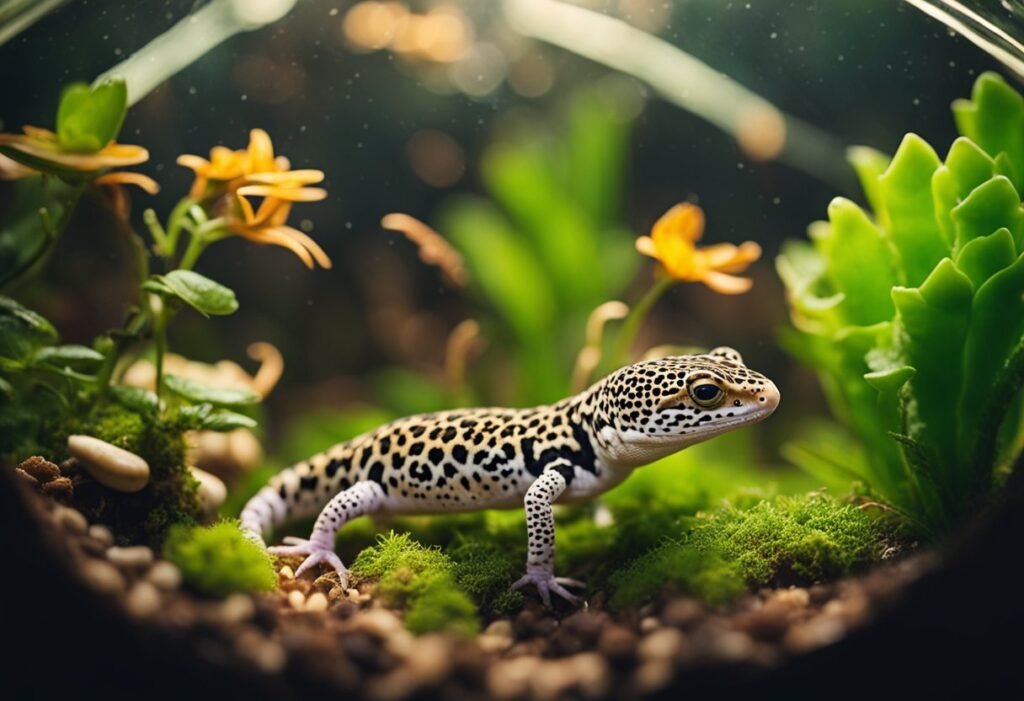
When it comes to feeding leopard geckos, it’s important to follow safe feeding practices to ensure their health and well-being. Here are some guidelines to follow:
Frequency and Quantity
We recommend feeding adult leopard geckos every other day, while juveniles should be fed daily. It’s important not to overfeed your leopard gecko, as obesity can lead to health problems. As a general rule, feed your gecko an amount of food that’s roughly the size of their head.
Preparation and Presentation
Bloodworms are a nutritious food option for leopard geckos, but it’s important to properly prepare and present them. We recommend purchasing frozen bloodworms and thawing them before feeding. To thaw, simply place the bloodworms in a small dish and let them sit at room temperature for about 10-15 minutes.
When presenting the bloodworms to your leopard gecko, it’s important to ensure that they are small enough for your gecko to eat comfortably. You can do this by chopping them up into smaller pieces if necessary. Additionally, we recommend using feeding tongs to prevent accidentally biting your gecko’s fingers.
By following these safe feeding practices, you can ensure that your leopard gecko stays healthy and happy.
Alternative Food Sources for Leopard Geckos
Leopard geckos are known for their love of insects, particularly crickets and mealworms. However, it’s important to provide them with a varied diet to ensure they receive all the necessary nutrients. Here are some alternative food sources for leopard geckos:
Insects and Larvae
In addition to crickets and mealworms, there are many other insects and larvae that leopard geckos can eat. Some of these include:
- Dubia roaches
- Waxworms
- Superworms
- Phoenix worms
- Hornworms
- Silk worms
It’s important to note that not all insects are created equal. Some insects, like waxworms, are high in fat and should only be fed as an occasional treat. Others, like hornworms, are high in calcium and can be fed more frequently. It’s also important to gut-load insects with nutritious foods before feeding them to your leopard gecko.
Commercial Diets
There are also commercial diets available for leopard geckos. These diets come in the form of pellets or powders that can be mixed with water to create a paste. Some popular brands include:
- Repashy
- Pangea
- Zoo Med
While commercial diets can be a convenient option, it’s important to read the ingredients list to ensure they contain all the necessary nutrients. It’s also important to note that some leopard geckos may not take to commercial diets and may prefer live insects.
In conclusion, there are many alternative food sources for leopard geckos. By providing a varied diet, you can ensure your leopard gecko receives all the necessary nutrients for a healthy life.
Recognizing and Addressing Dietary Issues
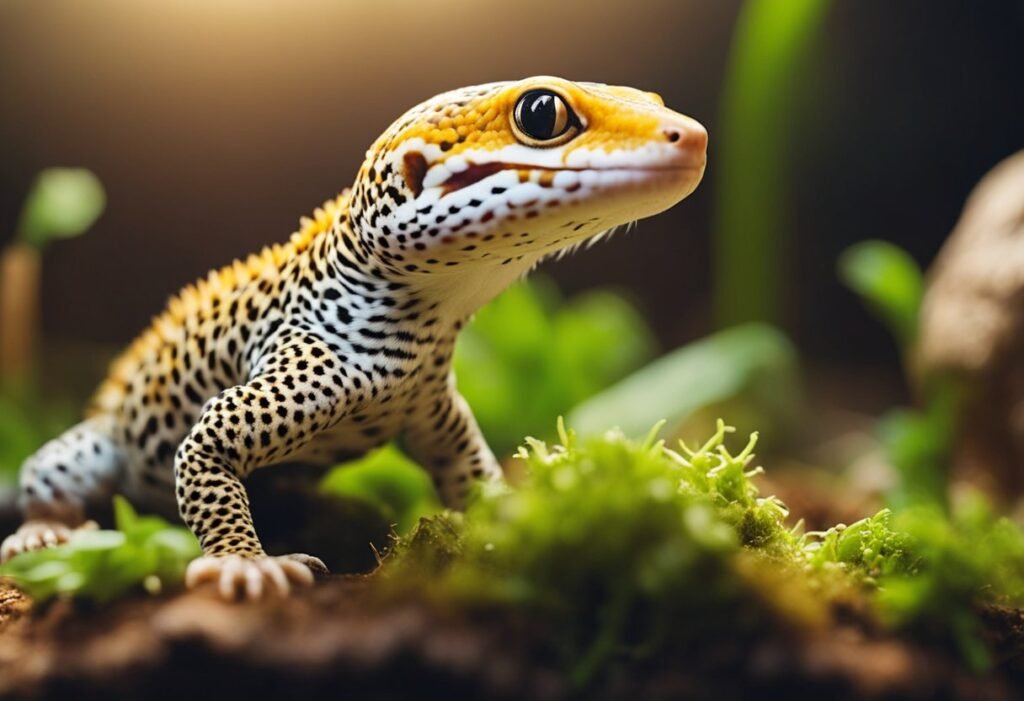
Signs of Nutritional Deficiencies
It is important to ensure that your leopard gecko is receiving a balanced and nutritious diet to maintain their health and wellbeing. A diet that lacks essential nutrients can lead to various health issues and even death. Therefore, it is essential to recognize the signs of nutritional deficiencies in your leopard gecko.
One of the most common signs of nutritional deficiencies is weight loss. If your leopard gecko is losing weight despite eating regularly, it may be a sign of malnutrition. Other signs of nutritional deficiencies include a lack of appetite, lethargy, weakness, and a dull coat.
When to Consult a Veterinarian
If you suspect that your leopard gecko is suffering from a nutritional deficiency, it is important to consult a veterinarian who specializes in reptile care. A veterinarian can perform a physical examination and run diagnostic tests to determine the cause of the deficiency.
In some cases, the cause of the nutritional deficiency may be due to an underlying health condition. In other cases, it may be due to an inadequate diet. A veterinarian can provide you with advice on how to address the deficiency and ensure that your leopard gecko is receiving a balanced and nutritious diet.
In conclusion, it is important to recognize the signs of nutritional deficiencies in your leopard gecko and take action to address them. By providing your leopard gecko with a balanced and nutritious diet, you can help ensure that they live a long and healthy life.
Frequently Asked Questions
What are the dietary requirements of leopard geckos?
Leopard geckos are insectivores, which means they primarily eat insects. In the wild, they feed on a variety of insects, including crickets, mealworms, and waxworms. In captivity, it’s important to provide a balanced diet that includes a variety of insects to ensure they receive all the necessary nutrients.
Are bloodworms a suitable food for leopard geckos?
Bloodworms are not a suitable food for leopard geckos. While they are a popular food for fish, they do not provide the necessary nutrients that leopard geckos need. They are also high in fat, which can lead to health problems if fed too frequently.
How often should leopard geckos be fed worms?
Leopard geckos should be fed worms every other day. It’s important not to overfeed them, as this can lead to obesity and health problems.
What alternative foods can I offer my leopard gecko in the absence of worms?
If you’re unable to provide worms, there are several alternative foods you can offer your leopard gecko. These include crickets, mealworms, waxworms, and silkworms. It’s important to provide a variety of insects to ensure they receive all the necessary nutrients.
Is it safe to feed earthworms to leopard geckos?
Earthworms are safe to feed to leopard geckos, but they should be fed in moderation. They are high in protein and can be a good source of nutrition, but they can also be high in fat.
Can leopard geckos have fish as part of their diet?
Leopard geckos should not be fed fish as part of their diet. Fish do not provide the necessary nutrients that leopard geckos need and can lead to health problems if fed regularly.

